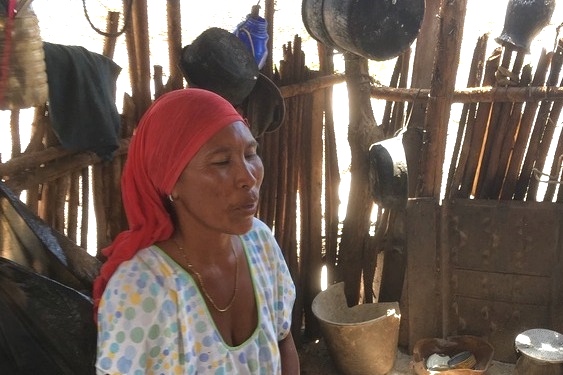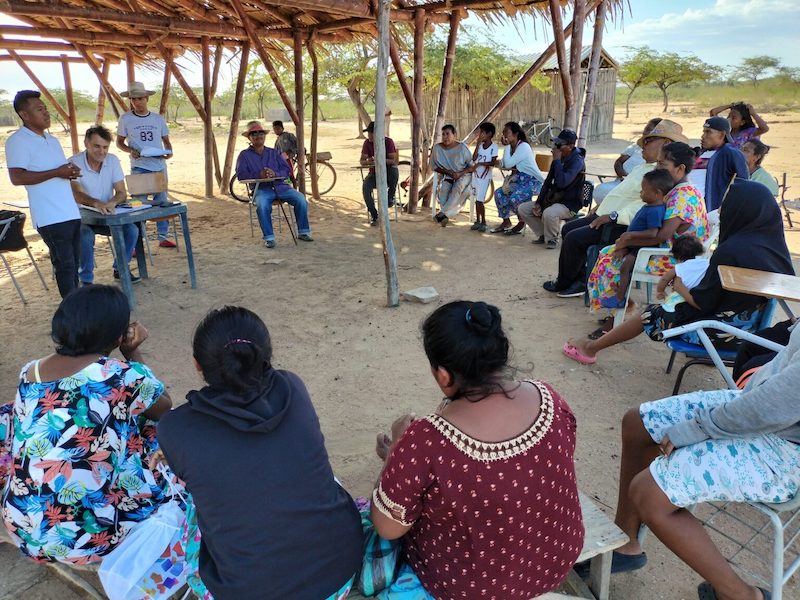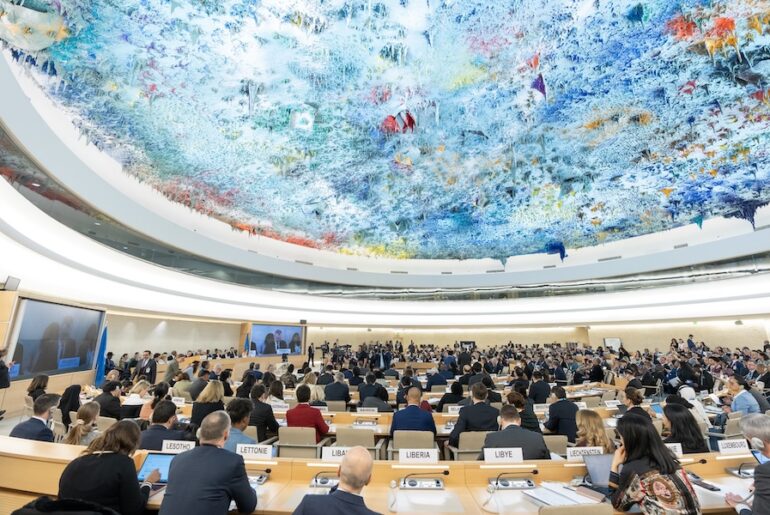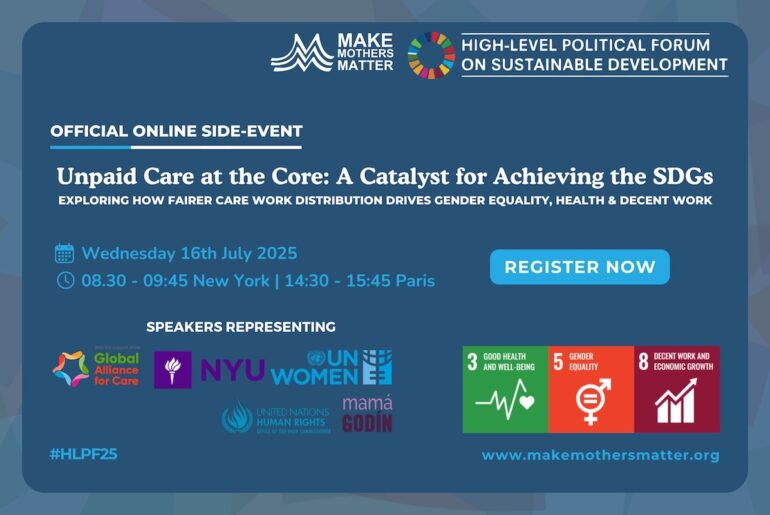Exposing the suffering of indigenous mothers and children in Colombia
10.11.23
UN Geneva – In a joint submission to the Committee on Economic Social and Cultural rights (CESCR), MMM and its grassroots member EDO Group denounce the multiple human rights violations suffered by indigenous mothers in La Guajira, the northern province of Colombia.

La Guajira is a region rich in coal and gas, wind and sun. But it is plagued by inequality, poverty, corruption and malnutrition, as multinational companies are given priority over the welfare and wellbeing of Indigenous people, the sustainability of their land and the natural environment.
La Guajira has been the Wayuu’s territory for several thousand years, an indigenous people who traditionally live on the land of their mothers’ ancestors, in a matrilineal clan society, with no central power or coordination. Wayuu do not live in villages, and form small, scattered rural communities in which each inhabitant is linked to the others by ties of maternal consanguinity and shares a common social status and past.
The rights of the Wayuu and their clans have always been ignored; but since the 1980s their human rights situation has been deteriorating.
At 67.4%, the poverty rate in La Guajira is much higher than the Colombian average of 39%. Poverty also disproportionately affects Indigenous people, who live in situations of extreme vulnerability. Wayuu women, particularly mothers, face survival challenges as their most fundamental rights are violated, including access to food and water, health care, and quality education for themselves and their children. Malnutrition is rampant, with particularly dramatic consequences on children.
These multiple human rights violations are detailed in the report that MMM and EDO Group submitted to CESCR ahead of the Pre-session on Colombia.
Although the Colombian Constitutional Court declared the situation unconstitutional and called for special protection of the rights to water, health and food for the indigenous Wayuu communities, the Colombian government has been slow to respond: Wayuu mothers are still without answers to their suffering and continue to lose their children due to malnutrition and unsafe water. The situation is critical: only one meal a day, and living conditions that very few could bear.

EDO Group’s demands to the Colombian government:
- Understand the systemic dynamics of the Wayuu people and put an end to the gross violation of their fundamental human rights; ensure their participation in the formulation and monitoring of local public policies and projects that affect their future
- Hold multinational companies to account so that they fully respect the human rights of indigenous people, work with Wayuu ethnic development experts and local communities, and positively and sustainably contribute to the economic social, and cultural development of these regions
- Work with and invest in local indigenous communities, in particular women, by developing basic infrastructure and services, so that the Wayuu clans recover their health sovereignty, build an education system tailored to the needs and constraints of the dispersed rural clans, and develop basic services such as water and sanitation, transport, energy and telecommunications
- Provide financial support for social innovation initiatives carried out by expert local NGOs, so that ethnic Wayuu communities can survive, develop and thrive.
A discussion on the implementation of the Covenant in Colombia and 6 other State parties took place during the 73rd Pre-sessional Working Group session in October 2023. Following MMM and EDO Group’s joint submission, EDO Group also participated in the discussion between CESCR Experts and civil society organisations.
The List of Issues released by the CESCR at the end of the Pre-session to the government of Colombia includes several points on indigenous people’s human rights violation – although neither the Wayuu people nor the province of Guajira are explicitly mentioned. The Colombian Government is expected to provide a written response to the list of issues by October 2024. A session will then be scheduled in 2025 where CESCR will hold a constructive dialog with government representatives to tackle these issues.
![]() Read MMM/EDO Group joint submission
Read MMM/EDO Group joint submission
Envisioning care as a common thread to global crises
29.07.24
UN New York - Our virtual HLPF side-event brought together experts to shed light on how the various global crises we face (in particular climate change and other environmental crises,
We call for multi-stakeholder approach to recognise and support unpaid care work
21.07.24
UN New York - Participating in the meeting of the UN Economic and Social Council (ECOSOC) on care and support systems, MMM reaffirmed the principle of co-responsibility, which should underpin
The New EU Gender Equality Roadmap : A Call for Inclusion of Mothers
04.03.25
The European Commission’s initiative on a new Gender Equality Roadmap post-2025, marks a significant step forward in addressing gender disparities across the European Union. Make Mothers Matter (MMM








